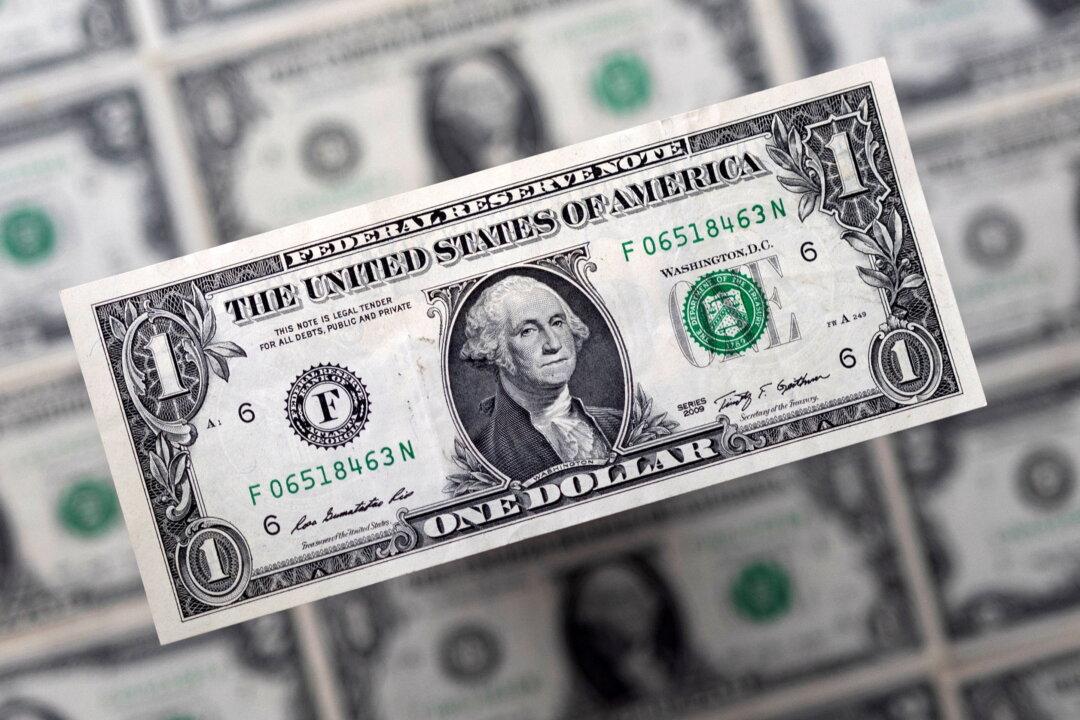LONDON—The dollar hovered close to its highest since March on Friday, as optimism over a breakthrough in U.S. debt ceiling talks and robust economic data reduced the chances of a series of U.S. rate cuts this year.
Negotiators for Joe Biden’s Democrats told the president on Friday that they are making “steady progress” in talks with Republicans aimed at avoiding a U.S. default, just days after Biden and top U.S. congressional Republican Kevin McCarthy underscored their determination to strike a deal to raise the government’s $31.4 trillion debt ceiling.





